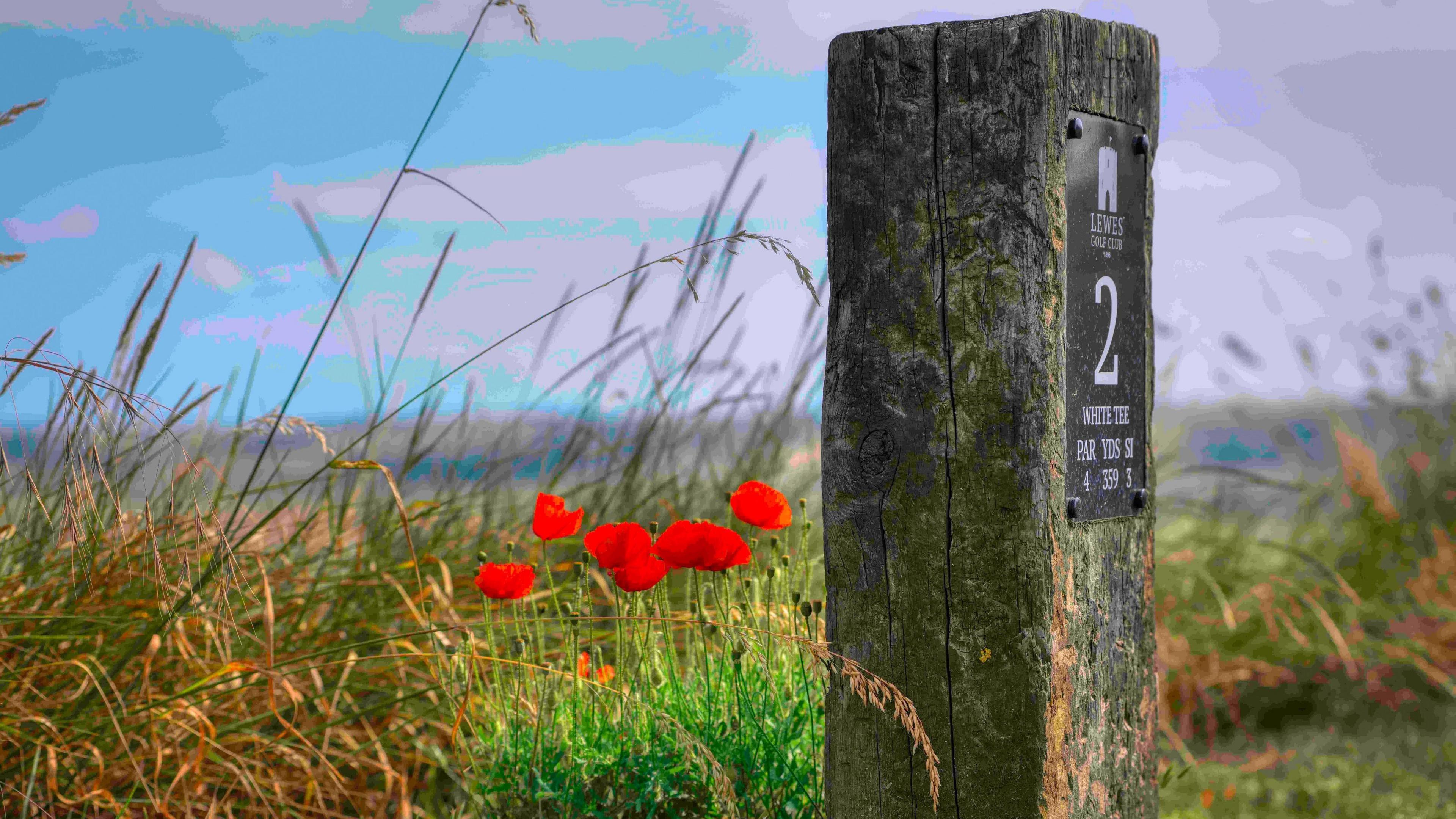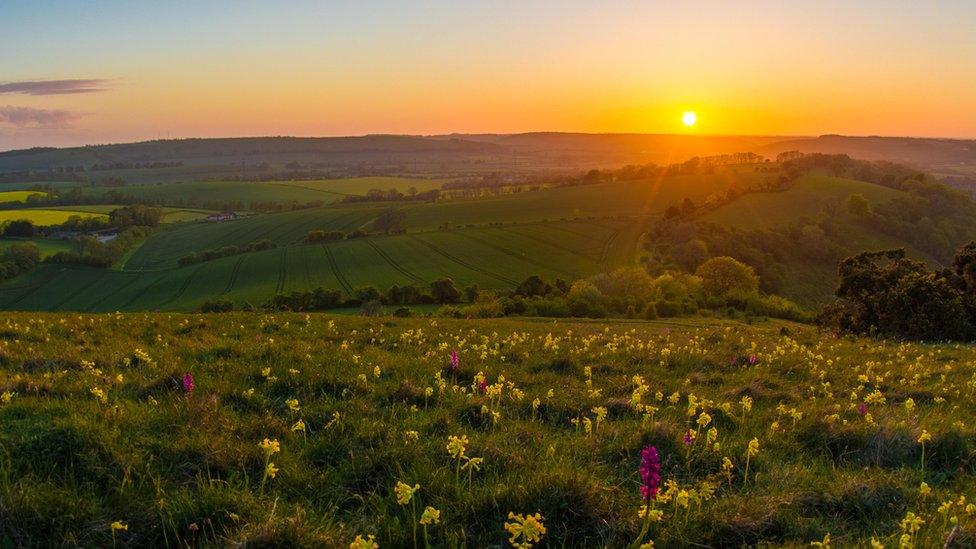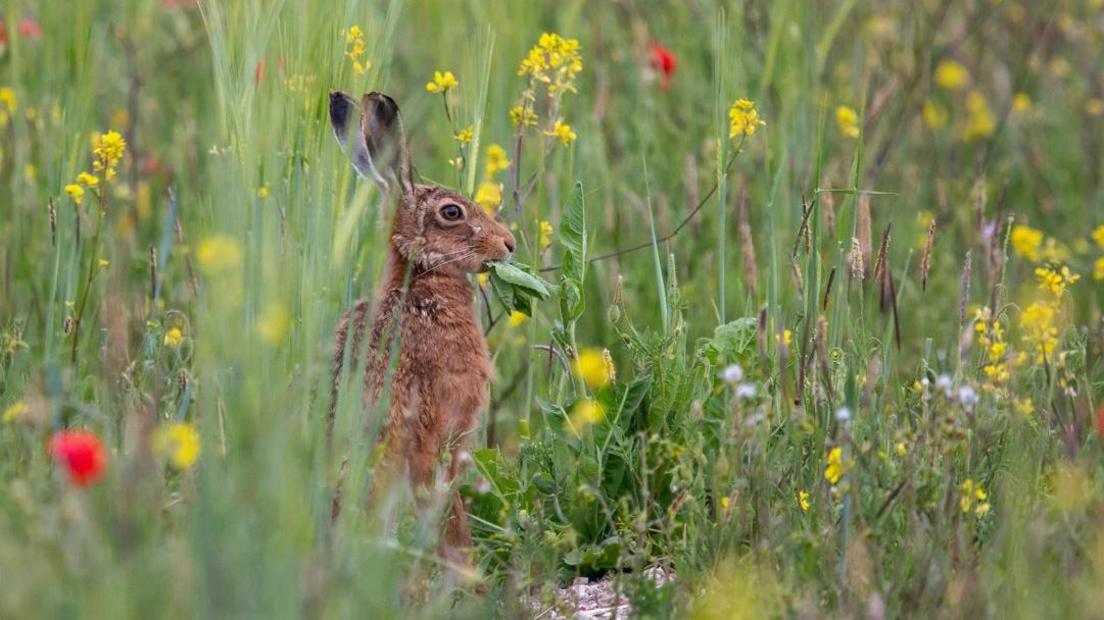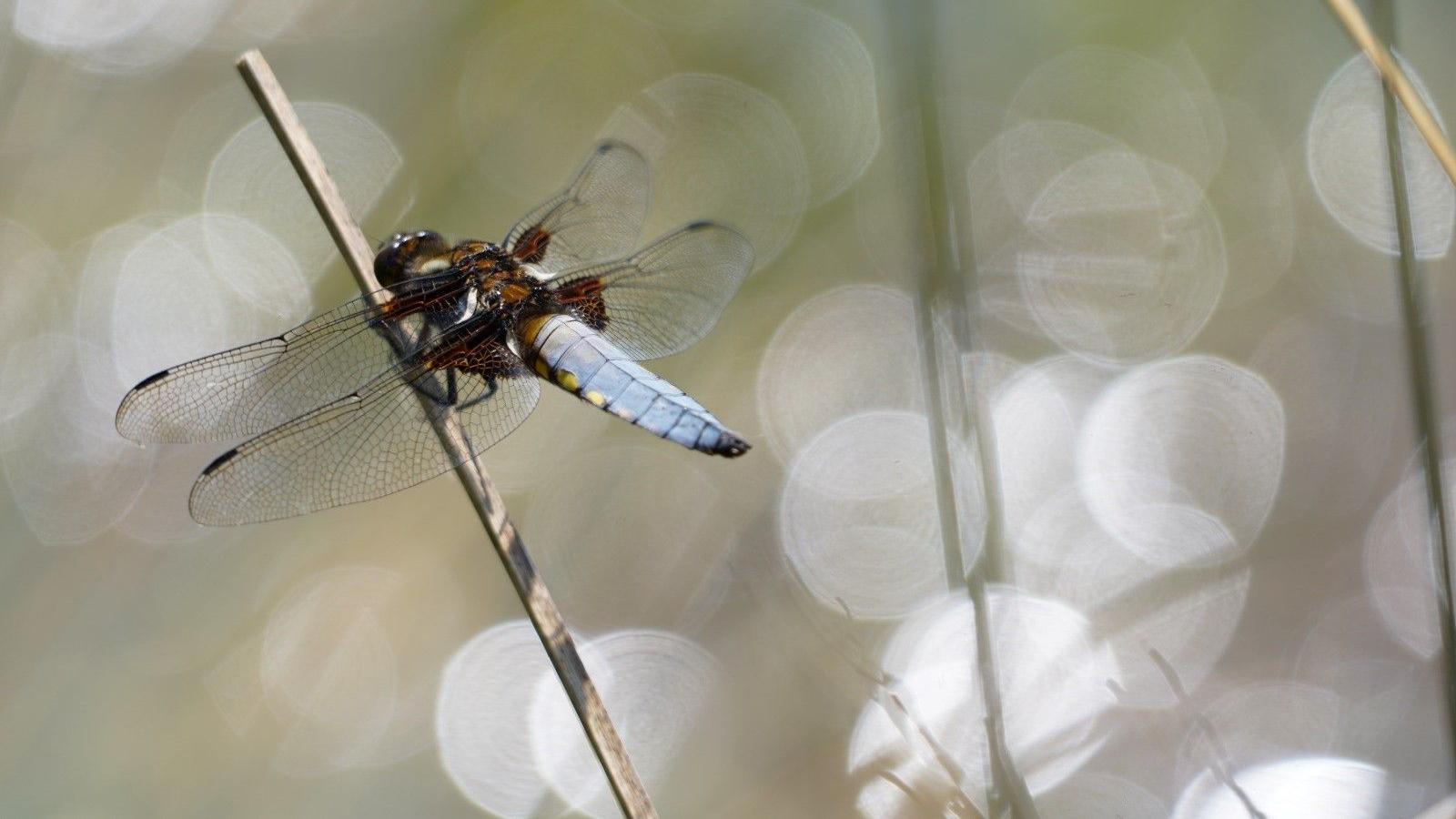Golf clubs fight biodiversity loss

Lewes Golf Course received a grant to buy a "cut and collect" machine
- Published
Golf courses across the South Downs National Park have joined together to share knowledge and practical support to help fight biodiversity loss.
The project aims to help green-keepers create havens for wildlife, particularly bees and butterflies, as well as introduce mowing methods to protect rare chalk grassland and encourage wildflowers.
A total of 14 golf clubs across Sussex took part in a seminar at Pyecombe Golf Club, near Brighton - where 34 species of butterfly were found in 2023.
Caroline Croft, operations manager at Sussex-based environmental charity the Southwood Foundation, said: "Biodiversity in the UK is struggling, and we need nature corridors for wildlife to be able to thrive."
She said golf clubs could "play a significant role" and said extending the roughs where possible was one "really impactful step" that could be taken.
“Clubs doing this are seeing significant increases in pollinators, such as butterflies, without impeding the game."
The operations manager explained that the idea was also to help clubs save resources and work with nature to control pests.
A "cut and collect" system has been introduced, which enables rare chalk grassland to be maintained and wildflowers to grow as the cuttings are collected instead of left on the ground.
'Huge' savings
Tim Brewster is course manager at Lewes Golf Club, which received a grant to buy a "cut and collect" machine.
He said: “After the first year, I have started to notice a larger amount of yellow rattle spreading to different areas of the course, which already looks to start thinning out the areas, which is great for golfers to find their ball, but also a positive for wildflowers.
“The savings we have made are huge, we have cut down the time to complete this work to a month and a half. So that’s nearly cut the time in half, so saved lots of money on diesel and man hours."
Follow BBC Sussex on Facebook, external, on X, external, and on Instagram, external. Send your story ideas to southeasttoday@bbc.co.uk or WhatsApp us on 08081 002250.
Related topics
- Published15 October 2021

- Published14 July 2024

- Published7 June 2024
